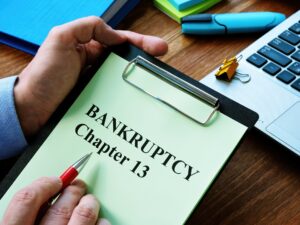You may be considering bankruptcy after receiving a judgment from being sued if you are struggling to meet your financial obligations. Especially when it comes to situations where there is a lawsuit judgment from one of your creditors, navigating bankruptcy can be a bit more challenging.
At Grady BK, PLLC, our goal is to provide our Central New York clients with the straightforward and empathetic legal guidance they need as they file for bankruptcy. We understand that this process can feel very intimidating and discouraging, which is why we will be there with you every step of the way. In this article, we will be discussing whether or not you can file for bankruptcy after a lawsuit judgment in NY.
What Happens if You Have a Judgment Against You?
You may face a lawsuit judgment if you owe a creditor and they are pushing to collect the debt by force. Unfortunately, it is not uncommon for these types of lawsuits to be successful, especially if it is clear that you owe the debt and haven’t been able to stay on top of it. If this is the case, you may want to file for bankruptcy in New York as a way of finding financial relief.
After a judgment has been entered, the creditor will usually be entitled to certain collection actions that have been court-issued. This can include garnishing wages, placing liens on your property, freezing bank accounts and/or seizing assets.
Generally speaking, a judgment should not impact your ability to file for bankruptcy in New York. However, it is strongly recommended that you file for bankruptcy before a lawsuit becomes a judgment, as acting quickly could prevent this from happening altogether. But if a judgment has already been made, you still have options.
Can Bankruptcy Discharge Judgments?
Are you wondering if bankruptcy can remove a court judgment? Well, the answer is not always straightforward, as it is dependent on the situation, the type of debt, and the type of bankruptcy you file for.
In some cases, you may be able to discharge part of your creditor’s judgment depending on the specific case. If it is considered to be a dischargeable debt, it may be completely eliminated when you file for bankruptcy. However, if the judgment created a lien on your property, bankruptcy may not be enough to protect you.
If your creditor has a lien on your property, you may be able to remove the lien by filing a motion in the Bankruptcy Court. To do this, you have to demonstrate that state or federal law makes you exempt from all or a portion of the lien. There are several exemptions in New York that allow you to keep a certain amount of financial or property assets, which may be enough to cover the judgment.
Before moving forward with your case, you should consult with a bankruptcy attorney to determine the best course of action to better protect your finances.
What if Judgment Collection Has Already Started?
Depending on when you file for bankruptcy, your creditors’ judgment may have already started to take effect. This could mean that your wages are being garnished, your bank accounts are frozen, or there is a lien on your home, etc. If this is the case, you may not know what to do next or whether or not bankruptcy can help.
The good news is that bankruptcy can help you deal with creditor judgments in a variety of ways. For instance, a bankruptcy can stop a garnishment, unfreeze bank accounts, and stop any further action on the judgment.
Navigating Judgment Property Liens in Bankruptcy
One of the more severe collection efforts that can come as a result of a lawsuit judgment is a lien. The good news is that when you file for bankruptcy, you may be able to get rid of a judgment lien on your property through what is known as lien avoidance.
For you to qualify for lien avoidance, you must meet the following conditions:
- The lien was issued as a result of a court-issued money judgment.
- The lien judgment would impair your exemption.
- The lien is not connected to a judgment for alimony or delinquent child support.
- You could exempt the property through bankruptcy.
To determine whether or not you qualify for lien avoidance, you should discuss your situation with a bankruptcy attorney in New York.
FAQ:
Does bankruptcy remove a court judgment in New York?
A bankruptcy won’t remove the fact that a judgment happened, but it can stop/prevent the judgment creditor from enforcing the judgment.
Can I file bankruptcy after my wages have already been garnished?
Yes, a bankruptcy will stop further garnishments.
New York’s Top Compassionate Bankruptcy Attorney
If you are navigating wage garnishment judgment bankruptcy in Central New York, you may not know where to get started and how this will impact your bankruptcy case. At Grady BK, PLLC, we approach our clients with the goal of simplifying the bankruptcy process. We will work with you one-on-one as you address a lawsuit judgment, file for bankruptcy, and navigate what comes next.
At Grady BK, PLLC, we can help you understand the complexities of bankruptcy after a lawsuit judgment in CNY, and how this will impact your case. Our attorneys will be available to assist you with any questions or concerns you may have throughout the process.
Contact us today at 315-299-9005 to discuss your financial situation with a bankruptcy lawyer in Central New York. Our team at Grady BK, PLLC, is here to assist you, whether you are filing for Chapter 7 or Chapter 13 bankruptcy.



